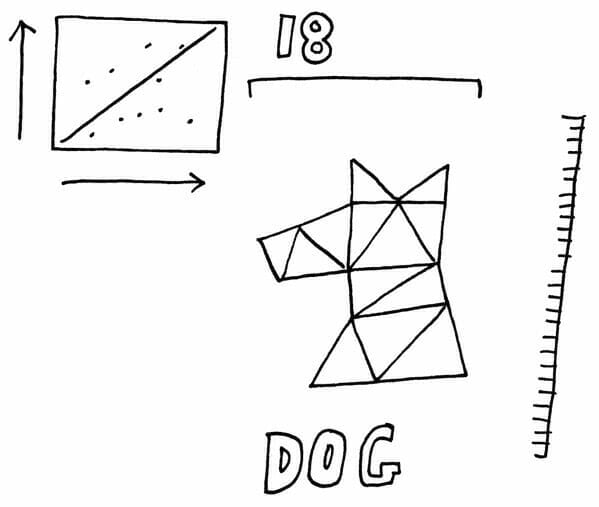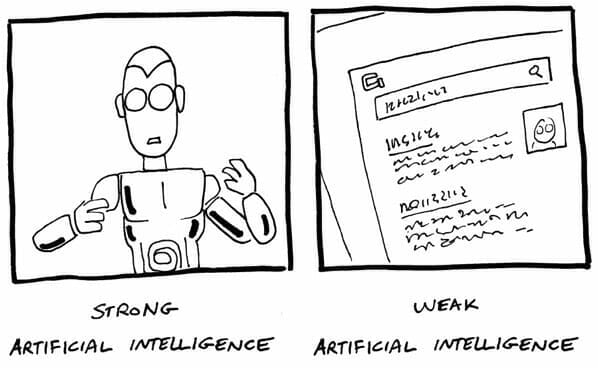The symbolic systems approach and AI planning work great for applications that have a limited number of matching patterns; for example, a program that helps you complete your tax return. The IRS provides a limited number of forms and a collection of rules for reporting tax-relevant data. Combine the forms and instructions with the capability to crunch numbers and some heuristic reasoning, and you have a tax program that can step you through the process. With heuristic reasoning, introduced in the previous chapter, you can limit the number of patterns; for example, if you earned money from an employer, you complete a W-2 form. If you earned money as a sole proprietor, you complete Schedule C.
The limitation with this approach is that the database is difficult to manage, especially when rules and patterns change. For example, malware (viruses, spyware, computer worms and so forth) evolve too quickly for anti-malware companies to manually update their databases. Likewise, digital personal assistants, such as Siri and Alexa, need to constantly adapt to unfamiliar requests from their owners.
To overcome these limitations, early AI researchers started to wonder whether computers could be programmed to learn new patterns. Their curiosity led to the birth of machine learning — the science of getting computers to do things they weren't specifically programmed to do.
Machine learning got its start very shortly after the first AI conference. In 1959, AI researcher Arthur Samuel created a program that could play checkers. This program was different. It was designed to play against itself so it could learn how to improve. It learned new strategies from each game it played and after a short period of time began to consistently beat its own programmer.
A key advantage of machine learning is that it doesn't require an expert to create symbolic patterns and list out all the possible responses to a question or statement. On its own, the machine creates and maintains the list, identifying patterns and adding them to its database.
Imagine machine learning applied to the Chinese room experiment. The computer would observe the passing of notes between itself and the person outside the room. After examining thousands of exchanges, the computer identifies a pattern of communication and adds common words and phrases to its database. Now, it can use its collection of words and phrases to more quickly decipher the notes it receives and quickly assemble a response using these words and phrases instead of having to assemble a response from a collection of characters. It may even create its own dictionary based on these matching patterns, so it has a complete response to certain notes it receives.
Machine learning still qualifies as weak AI, because the computer doesn't understand what's being said; it only matches symbols and identifies patterns. The big difference is that instead of having an expert provide the patterns, the computer identifies patterns in the data. Over time, the computer becomes "smarter."
Machine learning has become one of the fastest growing areas in AI primarily because the cost of data storage and processing has dropped dramatically. We are currently in the era of data science and big data — extremely large data sets that can be computer analyzed to reveal patterns, trends and associations. Organizations are collecting vast amounts of data. The big challenge is to figure out what to do with all this data. Answering that challenge is machine learning, which can identify patterns even when you really don't know what you're looking for. In a sense, machine learning enables computers to find out what's inside your data and let you know what it found.
Machine learning moves past the limitations with symbolic systems. Instead of memorizing symbols a computer system uses machine learning algorithms to create models of abstract concepts. It detects statistical patterns by using machine learning algorithms on massive amounts of data.

So a machine learning algorithm looks at the eight pictures of different dogs. Then it breaks down these pictures into individual dots or pixels. Then it looks at these pixels to detect patterns. Maybe it sees a pattern all of these animals as having hair. Maybe it sees a pattern for noses or ears. It could even see a pattern that humans are unable to perceive. Collectively, the patterns create what might be considered a statistical expression of “dogness.”
Sometimes humans can help machines learn. We can feed the machine millions of pictures that we’ve already determined contained dogs, so the machine doesn’t have to worry about excluding images of cats, horses or airplanes. This is called supervised learning, and the data, consisting of the label “dog” and the millions of pictures of dogs is called a training set. Using the training set, a human being is teaching the machine that all of the patterns it identifies are characteristics of “dog.”
Machines can also learn completely on their own. We just feed massive amounts of data into the machine and let it find its own patterns. This is called unsupervised learning.
Imagine a machine examining all the pictures of people on your smart phone. It might not know if someone was your husband, wife, boyfriend or girlfriend. But it could create clusters of people that it sees are closest to you.
In one of my previous posts "The General Problem Solver," I discuss the debate over whether a physical symbol system is necessary and sufficient for intelligence. The developers of one of the early AI programs were convinced it did, but philosopher John Searle presented his Chinese room argument as a rebuttal to this theory. Searle concluded that a machine's ability to store and match symbols (patterns) to find the answers to questions or to solve problems does not constitute intelligence. Instead, intelligence requires an understanding of the question or problem, which a machine does not have.
Searle went on to distinguish between two types of artificial "intelligence" — weak AI and strong AI:
● Weak AI is confined to a very narrow task, such as Netflix recommending movies or TV shows based on a customer's viewing history, finding a website that is likely to contain the content a user is looking for, or analyzing loan applications and determining whether a candidate should be approved or rejected. A weak AI program does not understand questions, experience emotions, care about anything or anyone, or learn for the sake of learning. It merely performs whatever task it was designed to do.
● Strong AI exhibits human characteristics, such as emotions, understanding, wisdom, and creativity. Examples of strong AI come from science fiction—HAL (the Heuristically programmed ALgorithmic computer) that controls the spaceship in 2001: A Space Odyssey, Lieutenant Commander Data from Star Trek, and C3PO and R2-D2 from Star Wars. These mechanical, computerized beings have emotions, self-awareness, and even a sense of humor. They are machines capable of learning new tasks — not limited to the tasks they have been programmed to perform.

Just Getting Started
Contrary to what science fiction writers want us to believe and the dark warnings in the media about intelligent robots eventually being able to take over the world and enslave or eradicate the human race, most experts believe that we’re just getting rolling with weak AI. Currently, AI and machine learning systems are being used to answer fact-based questions, recommend products, improve online security, prevent fraud, and perform a host of other specific tasks that rely on processing lots of data and identifying patterns in that data. Strong AI remains relegated to the world of science fiction.
Weak AI is more of an illusion of intelligence. Developers combine natural language processing (NLP) with pattern matching to enable machines to carry out spoken commands. The experience is not much different from using a search engine such as Google or Bing to answer questions or asking Netflix for movie recommendations. The only difference is that the latest generation of virtual assistants, including Apple's Siri, Microsoft's Cortana, and Amazon's Alexa, respond to spoken language and are able to talk back. They can even perform some basic tasks, such as placing a call, ordering a product online, or booking a reservation at your favorite restaurant.
In addition, the latest virtual assistants have the ability to learn. If they misinterpret what you say (or type), and you correct them, they learn from the mistake and are less likely to make the same mistake in the future. If you use a virtual assistant, you will notice that, over time, they become much more in tune with the way you express yourself. If someone else joins the conversation, the virtual assistant is much more likely to struggle to interpret what that person says.
This ability to respond to voice commands and adapt to different people's vocabulary and pronunciation may appear to be a sign of intelligent life, but it is all smoke and mirrors — valuable, but still weak AI.
Weak AI also includes expert systems — software programs that use databases of specialized knowledge along with processes, such as decision trees, to offer advice or make decisions in areas such as loan approvals, medical diagnosis, and choosing investments. In the U.S. alone, about 70 percent of overall trading volume is driven by algorithms and bots (short for robots). Expert systems are also commonly used to evaluate and approve or reject loan applications. Courts are also discussing the possibility of replacing judges with experts systems for more consistency (less bias) in rendering verdicts and punishments.
To create expert systems, software developers team up with experts in a given field to determine the data the experts need to perform specific tasks, such as choosing a stock, reviewing a loan application, or diagnosing an illness. The developers also work with the experts to figure out what steps the experts take in performing those tasks and the criteria they consider when making a decision or formulating an opinion. The developers then create a program that replicates, as closely as possible, what the expert does.
Developers may even program learning into an expert system, so that the system can improve over time as more data is collected and analyzed and as the system is corrected when it makes mistakes.
Although weak AI is still fairly powerful, it does have limitations, particularly in the following areas:
● Common sense: AI responds based on the available data — just the facts, as presented to it. It doesn't question the data, so if it has bad data, it may make bad decisions or offer bad advice. Specifically in the area of the stock market, bad data could trigger an unjustified selloff and, because the bots can execute trades so quickly, that could lead to considerable financial losses for investors.
● Emotion: Computers cannot offer the emotional understanding and support that people often need, although they can fake it to some degree with emotional language.
● Wisdom: While computers can store and recall facts, they lack the ability to discern less quantifiable qualities, such as character, commitment, and credibility — an ability that may be required in some applications.
● Creativity: Computers cannot match humans when it comes to innovation and may never be able to do so. While computers can plod forward to solve problems, they do not make the mental leaps that humans are capable of making. In exploring all the possibilities to solve a problem, for example, computers are susceptible to combinatorial explosions — a mathematical phenomenon in which the number of possible combinations increases beyond the computer's capability to explore all of them in a reasonable amount of time.
Given its limitations, weak AI is unlikely to ever replace human beings in certain roles and functions. A more likely scenario is what we are now seeing — people teaming up with AI systems to perform their jobs better and faster. While humans provide the creativity, emotion, common sense, and wisdom that machines lack, machines provide the speed, accuracy, thoroughness, and objectivity often lacking in humans.